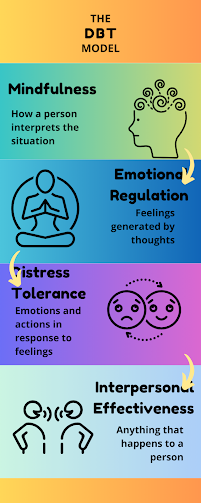Sharing DBT with Another Child
This particular daughter recently asked about looking into finding a therapist to see on a regular basis. She had heard from a few family members the difference going to counseling had helped them. Up to this point I hadn't really felt a need for them to attend therapy sessions, mainly because after all the sessions and training I had received while raising the previous two generations of children, I felt her aunt who lives with us, and I could talk with her and her sister and help them through many of the issues their parents and grandparents had struggled with. Also, some of the issues and people that had been involved in prior choices had either changed, overcome some of the addictions and unhealthy choices, or were no longer an active part of the children's lives.
What this daughter had brought home from the fireside was a workbook based on what is known as Dialectical Behavioral Therapy (DBT). For me, knowing what DBT is about I was thrilled for her. While I was raising one of the previous children, I had custody of, he and I were required, to participate in DBT training for teens and their parents. While he did not finish the course, either time he was ordered to, I did complete the full 16-week course both times. Much of who I am and what I share with others is because of this training. At the time it was still fairly new, but now it has become what many social workers and therapists are using with their clients, especially those that are teens. Having this workbook at her disposal, whether she works with a therapist, or alone with me will give her skills that will last her a lifetime.
This morning, I shared with her a set of key-chain cards I have that are simple reminders of the skills she will learn through the workbook about mindfulness, interpersonal effectiveness, distress tolerance, and emotional regulation, which are the four basic mental-health areas covered. I am so looking forward to sharing the exercises with her, watching her learn and develop new skills and make new choices.



Comments
Post a Comment